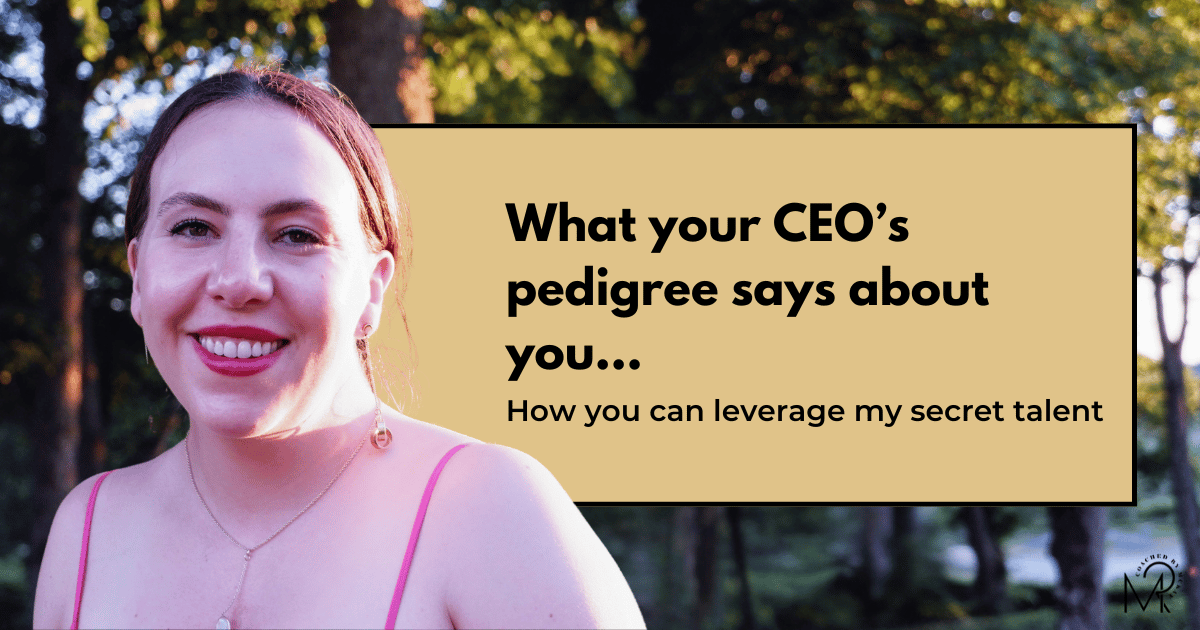Welcome to The Thinker, a twice-monthly newsletter where I provide thought-provoking questions to help you cultivate a fulfilling and high-performing career.
Hello, hello!
One of my weirdest party tricks is that I can look at your CEO’s LinkedIn profile and, based on it, tell you exactly how you should think about your career, whether the company is going to succeed or not, and what the chairman of the Board is probably worried about.
This quirk comes from years of researching people before meeting them, pattern-matching their behavior to the inputs on their LinkedIn profile, and overlaying all these data points on their biases and personal goals. So basically, I have this skill because I had a career in Partnerships :)
The ability to deeply understand a stakeholder’s background comes in very handy when I coach my clients on how to manage up. It allows us to unearth loads of context on a stakeholder’s biases, goals, and gaps. And it allows my clients to get clarity on what they need to do to progress while making an impact.
So, without further ado, here are the three questions you can ask yourself to 10x your ability to manage up to your execs.
1. Where did they go to school?
→ What kind of university?
→ Where did they go to grad school? Or did they choose not to?
Where you went to school matters, but not the way you think. It tells me less about how smart you are and it tells me more about how you think about the world. This is especially true for graduate schools, because grad programs self-select people with certain world views, and they then reinforce that world views.
For example: if you went to Berkeley Haas, you’re probably a really hard worker and you still have a chip on your shoulder about not getting into Stanford GSB. If you went to Wharton, you “grew up” with a bunch of finance bros and a part of you still wants to compete with their PE wealth. You get the picture - I could go on, but it’ll probably earn me some hate mail ;)
2. What is their fatal flaw?
→ How will they duck it up?
→ What is the BoD worried about?
Everyone has a fatal flaw, and people typically either a) pretend like they don’t have one, b) figure out what it is and try to change it, c) figure out what it is and manage around it.
Figuring out your CEO’s fatal flaw will help you understand where the company is going (up or down) and how quickly. It will also give you clarity on the risks you might face during your tenure and how you can manage them.
3. Who is in their inner circle?
→ What are those people’s biases?
→ What is the culture of disagreement?
Who your CEO hires says more about them than all their All Hands presentations combined. How they fill their e-staff (e.g. re-hired their friends, retained an executive search firm, created alignment through the interview process) matters as much as the demographics of who got the job.
Once you have a sense of the who and how, dig into their biases. How do they push back on key decisions? How much autonomy do they have to lead? How well are they working with their peers? This will tell you who has influence and who you should create alliances with to make real impact happen.
Sometimes a little empathetic judgment and pattern matching can tell you a lot about a person. All to say, the best way for you to progress in your career is to truly understand the stakeholders around you and learn how to make them better (so they can do the same for you!).
Cheers,
McKay
P.S. If you like this issue, reply and let me know, and I’ll do a part II. I’ve got loads of key questions for this topic!
There’s a reason 400,000 professionals read this daily.
Join The AI Report, trusted by 400,000+ professionals at Google, Microsoft, and OpenAI. Get daily insights, tools, and strategies to master practical AI skills that drive results.


